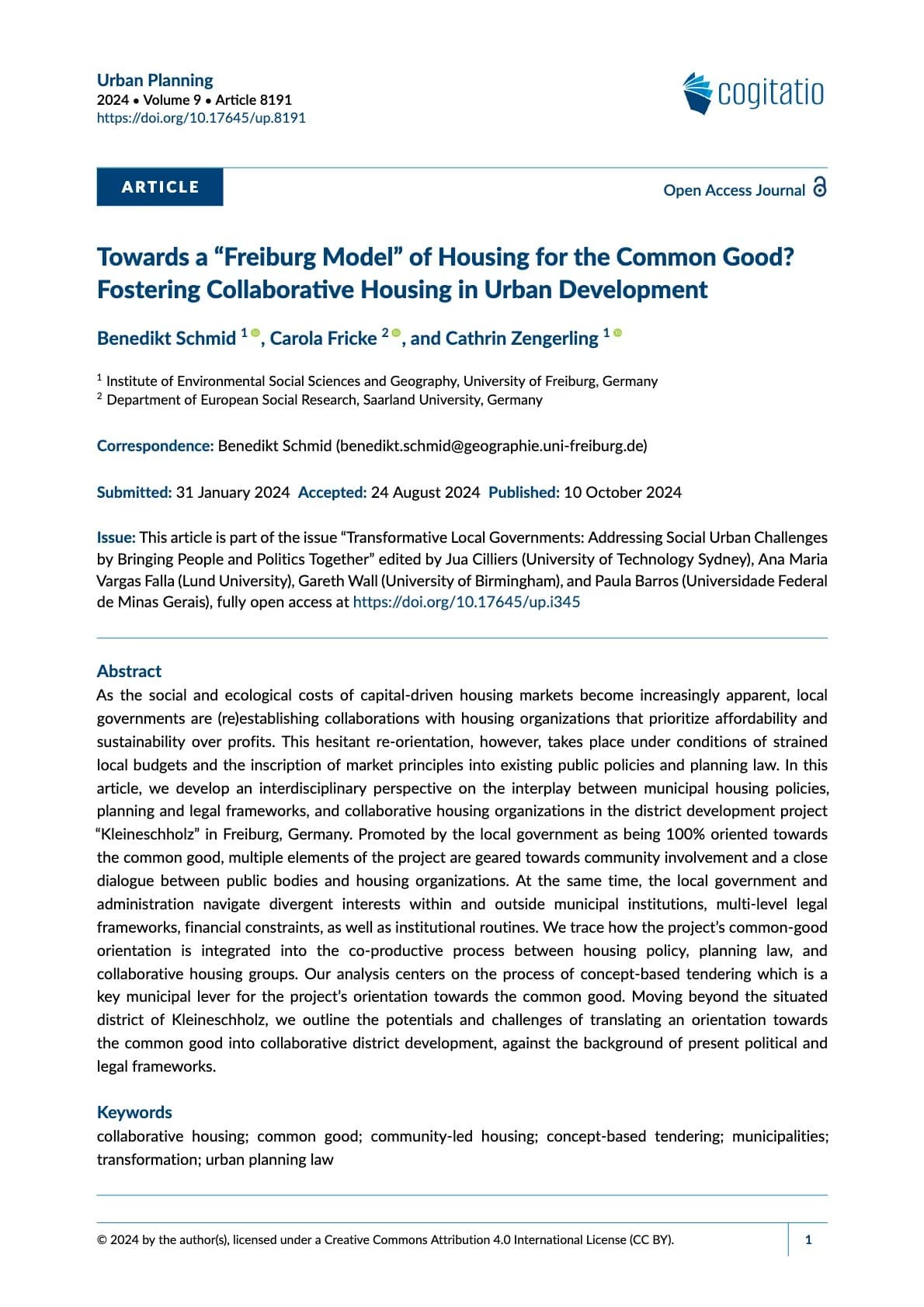AI-Generated Summary
The article "Towards a Freiburg Model of Housing for the Common Good? Fostering Collaborative Housing in Urban Development" is published in the journal Urban Planning by Benedikt Schmid, Carola Fricke, and Cathrin Zengerling. The authors hail from the Institute of Environmental Social Sciences and Geography at the University of Freiburg and the Department of European Social Research at Saarland University. Their research focuses on innovative urban development practices that prioritize social and ecological sustainability.
Context and Reorientation of Housing Development
As the negative social and ecological impacts of profit-driven housing markets become increasingly evident, local governments are exploring collaborations with housing organizations that prioritize affordability and sustainability. This shift occurs amidst financial constraints and the influence of market principles on public policies.
Case Study: Kleineschholz in Freiburg
The article focuses on the "Kleineschholz" district development project in Freiburg, Germany, designed to be entirely oriented towards the common good. This initiative emphasizes community involvement and aims to foster dialogue between public institutions and housing organizations. However, the local government faces challenges balancing diverse interests, legal frameworks, and financial limitations.
Collaborative Housing as a Solution
The authors define "collaborative housing" as various organizations that prioritize goals other than profit, encompassing cooperative and community-led initiatives. The article highlights the importance of understanding how "common good" concepts translate into practical applications within collaborative housing frameworks.
Municipal Strategies and Concept-Based Tendering
Freiburg's approach includes concept-based tendering, which serves as a significant lever for aligning housing policy with collaborative organizations. This process allows for qualitative evaluations of projects, enhancing flexibility and encouraging innovative proposals in the Kleineschholz project.
Principles of the Common Good
The project aims for affordable, eco-friendly housing and communal spaces. At least 50% of the residential floor area must be subsidized rental apartments, ensuring accessibility for a diverse range of residents. The municipality has introduced financial support measures totaling over €6 million to assist in the construction of these subsidized units.
Challenges and Opportunities
While Freiburg’s local government actively supports collaborative housing initiatives, challenges remain. High construction costs and fluctuating interest rates pose significant barriers, particularly for newer organizations without established funding channels. The municipality's regulations sometimes limit the flexibility needed for innovative solutions.
Future Implications for Urban Development
The Kleineschholz project marks a notable departure from traditional profit-oriented housing development. It serves as a potential prototype for other urban projects, although doubts exist regarding its scalability and applicability in different contexts. The article emphasizes the necessity for municipalities to maintain public land ownership to facilitate collaborative housing efforts, advocating for a shift away from privatization.
Conclusion
The Kleineschholz initiative exemplifies an effort to integrate collaborative housing into urban planning, prioritizing social and ecological principles. While it represents significant progress, ongoing dialogue between municipalities and housing organizations is essential for overcoming existing barriers and fostering sustainable housing solutions across Europe.
